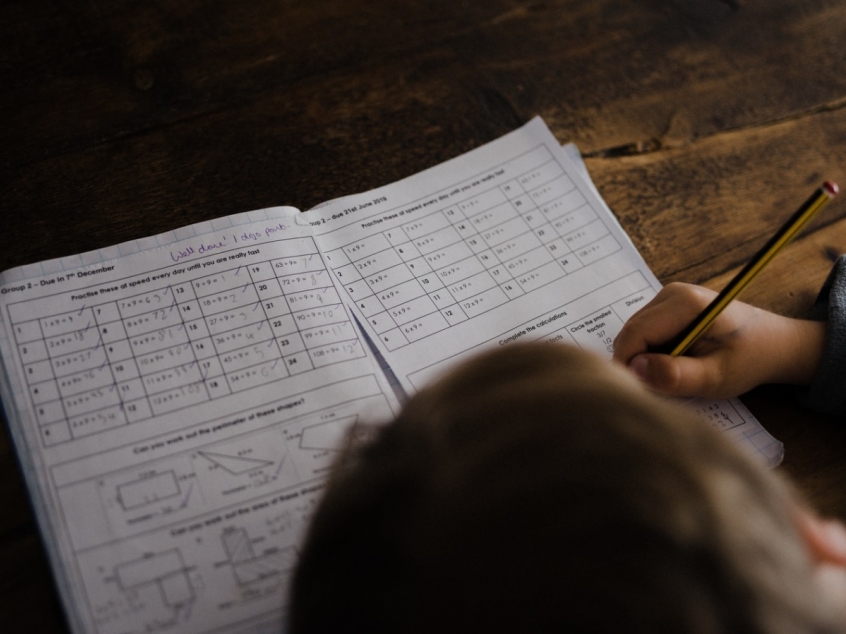
The Government is determined to introduce its new Relationships and Sex Education (RSE) curriculum this September, but Susan Mason is just one of many parents saying 'no'.
She became so concerned by what she was seeing in sex education in England that she decided to take a stand.
Her prayer to God was: "Give me just one person and the two of us will go to the school gate and start leafletting."
This is what she and other parents now do as part of the School Gate Campaign she founded to oppose sex education and, now, the new RSE curriculum becoming mandatory this year.
Susan speaks to Christian Today about why she's so worried about RSE and what other concerned parents can do.
CT: It was quite a bold move to start this campaign on your own. You must have been pretty concerned. Had you just reached the point where you felt like you couldn't stay silent anymore?
Susan: I had been following developments around sex education in England for a few years and then, most recently, the consultation for the new Relationships and Sex Education (RSE) curriculum - the legislation for which was basically pushed through on the back of a Brexit debate in the House of Commons.
I heard one conversation in particular that troubled me when a representative of the Values Foundation met with MPs about RSE. When that representative said that parents were going to be up in arms about the new curriculum, one MP's reply was that parents weren't going to know about it. I thought: hang on, that's not the way to approach education; to take other people's children and teach them things their parents are not aware of and may not agree with, and think that's acceptable.
I reasoned that if enough parents knew about this, they would feel the same as me, and would stand up and object.
CT: The main thrust of the campaign is leafletting at school gates. Have you found much awareness of what's happening?
Susan: This new curriculum is mandatory from this September, so parents and schools should be in consultation at some point in this academic year. But a lot of the parents we met were unaware that this was in the pipeline.
CT: What's been the response from parents that you've met at the school gates?
Susan: We don't necessarily talk to people. I personally just hand out leaflets, unless answering a question, while others like to have a chat. But nonetheless, I'd say we've had a mixed response.
The vast majority of parents happily take the leaflets and move on. Once or twice someone has come and given their leaflet back to one of our volunteers, although I haven't experienced that personally. A minority have said they've heard about RSE and support our campaign, and then occasionally there is someone who very strongly objects.
CT: You're a parent yourself. What is it about RSE that's worrying you so much?
Susan: The existing sex education is not working well. It was put into schools to reduce teenage pregnancies and STIs in young people but instead of reducing these, they have increased. If I were an educator or legislator, that would be enough to make me pause for thought and wonder if perhaps this is not the right direction to go in.
Child development experts argue that much sexual material is not appropriate for primary school children. This is relevant for the content around sexuality and gender as well. And these are extremely controversial issues on which even adults do not agree. For schools to take one side of the argument and present it to other people's children as "education" is actually breaking the law.
Also, under the Human Rights Act of 1998, it is the right of parents for their children to be educated in accordance with their philosophical and religious convictions. Some of the guidelines in the 1996 Education Act relating to what can and can't be taught have also been ignored.
These parental rights still stand, but they are being trampled on.

Even the RSE Act of Parliament itself says that schools should be mindful of the religion of the child and their family and that RSE must be age-appropriate.
But, from what we've seen so far from many early adopters of the curriculum, these legal provisions are being ignored.
CT: What do you think about the RSE curriculum coming in? Do you think parents should have a right to withdraw?
Susan: With sex education, there has always been an absolute right to withdraw at primary school level and schools are supposed to consult with parents first. But Ofsted has found that schools are very poor at consulting with parents. And the question is: if parents are not even aware of what's going on, how likely are they to withdraw their children? It's not necessarily straight-forward to withdraw your child from a class either, so I don't think that approach solves the problem.
CT: The controversial All About Me programme withdrawn by Warwickshire Council gives the impression that there is a lot of content being taught to children that schools are not actually compelled to teach. Would that be a fair assessment?
Susan: The All About Me programme, as I understand it, was a relationships programme but they included sex education. Now, if a curriculum has any sex education in it, it comes under particular legislation where the school has to consult with the parents and they have a right to withdraw their child. So even if you stick that content in a maths class, it doesn't make any difference, it's sex ed and parents have a right to withdraw.
Under the RSE legislation, schools are supposed to talk positively about marriage. But there are some programmes out there that are misleading children about gender and pushing sexual and moral boundaries. They appear to be on a mission to deconstruct traditional moral and family values.
CT: Do you think some schools are genuinely confused about what they're required to teach under the Equalities Act?
Susan: There are two sets of legislation at play. The Equalities Act and RSE legislation, and the Equalities Act is not required to be taught in schools. The Equalities Act was passed to prevent discrimination in the workplace so considerable gymnastics is needed to make it applicable to a four-year-old in Reception.
Under the Equalities Act, all you have to do in your classroom is make sure that no one is discriminated against. The Christian Institute has produced guidance about what actually is and isn't required, and it would be great if that got into every headteacher's hands.
The No Outsiders programme was marketed as being about equalities. But it's 35 lessons are either quite general or they focus on particular LGBT protected characteristics under the Act, while others (like race or religion) are not mentioned at all. If it's about equalities then why the bias towards certain characteristics and the silence on other ones? If that's not ridiculous, I don't know what is.

CT: The spread of controversial ideologies into school classrooms seems to be unstoppable and critics are not being heard, even when they're literally protesting outside school gates in their hundreds. Do you see any kind of sign of a sea change at all?
Susan: The thing to do with bullies is to stand up to them, and I think if enough people take a stand for children, we will succeed. It may take time and, because of the level of intimidation, people will need courage to participate. But I wouldn't have started the School Gate Campaign if I didn't think I could make a difference.
The campaign has moved online because of the Covid-19 crisis but I'm continuing to stay in touch with our network. We're using this time to drill down into the detail of the issues and explain what parents' rights are, because parents' rights are formidable in this area and they need to use them.
CT: It seems like a lot of the outspokenness on this has had to come from parents while church leaders have been largely silent.
Susan: There are Christians speaking up but they are not necessarily church leaders. There is considerable compromise on this issue; many churches have succumbed to the world in this respect and are not adhering to biblical teaching, which is quite clear. Jesus himself spoke strongly against porneia – all sex outside scriptural marriage. Christian leaders should set an example, not leave it to the people in the pews to lead the charge in this matter. But as Jesus said, many who are now first will be last.
Christians, Muslims and Jews are taking a stand, but what I would really like to see is people of all faiths and none opposing this. I think if we can demonstrate that kind of solidarity to the Government, they would pay attention and do something about it.
CT: What would you say to parents who feel unhappy but aren't sure what to do. What options are open to them?
Susan: During the consultation in their child's school, they need to ask to see the lesson samples which are required by law to be made available. And they should ask specifically for the samples to do with sex, sexuality and gender. It is also good to find other like-minded parents. They need to challenge any inappropriate content with the school, as is their right. Support is also available to them from organisations like Parent Power.
CT: Do you think that more parents might be tempted to homeschool because of the content of the RSE curriculum?
Susan: I have certainly heard people say that they are considering that for their children and I think a lot of Muslim parents have already done that as a result of the row in Birmingham. For now, homeschooling is the only area this legislation is not touching. Even independent schools are required to deliver this curriculum in some form or another. Whether homeschooling will remain untouched in the future remains to be seen.
CT: What is your message to the Government? What change would you like to see?
Susan: I would like to see a complete review of the legislation. The legislation says that pupils will learn about "safety in forming and maintaining relationships", "the characteristics of healthy relationships" and "how relationships may affect physical and mental health and well-being".
I wouldn't say that's an Act of Parliament; I would say that's something parents have been teaching their children for millennia. It appears that Parliament has decided that overnight parents have become incompetent to do that. I would like to see the evidence for that decision and for how a curriculum delivered by school teachers is any better than what parents can teach their children.
You may think the legislation sounds innocuous, but LGBT campaigners and their supporters have applauded it as a victory. What does that tell you? What's going on? Essentially, unless opposed, it will be used to indoctrinate other people's children. I think we can do very well without that Act of Parliament, don't you? It's just stating the obvious but it will be used to shoehorn a raft of content into our education system that is not welcome.













